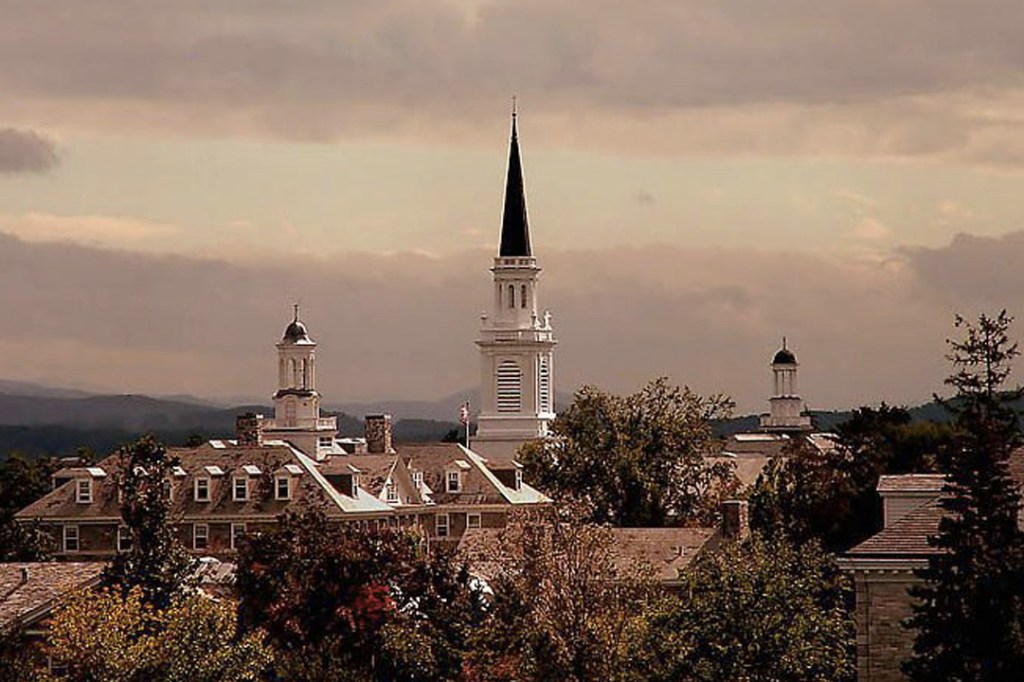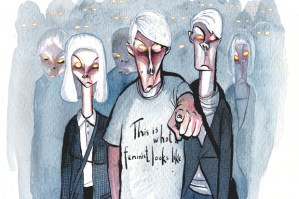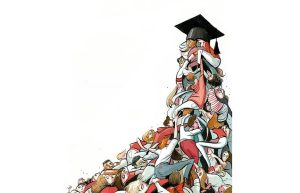The freedom to debate ideas in our nation’s colleges and universities is under attack. That much is well known. The only group on campus that can push back against the tide of censorship and silencing of speakers on campus are the students themselves. Higher education is supposed to be a place of intellectual discomfort, and students should object when their institutions silence dissenting ideas.
The latest round of administrative overreach and censorship in response to unpopular views comes courtest of Middlebury College in Vermont and is instructive.
Middlebury’s administration canceled a lecture last week that would have featured Ryszard Legutko, a controversial professor of philosophy at Jagiellonian University in Poland and a member of the European Parliament.
While the event was sponsored through academic departments, including Middlebury’s political science department and its Rohatyn Center for Global Affairs, the talk was canceled publicly via a school-wide email signed by the school’s provost and Vice President for Student Affairs Baishakhi Taylor. The statement did not give clear reasons for doing so, other than concerns for safety as understood by the school’s faculty.
Middlebury College already has a stain on its reputation with respect to free speech because of how it mishandled a visit from Charles Murray of the American Enterprise Institute in March 2017. Murray’s visit sparked protest and violence which resulted in a faculty member being seriously injured. In response to the Murray incident, college president Laurie L. Patton publicly stated that the college had ‘failed to live up to our core values.’
Sadly, it appears that Middlebury’s administrators learned nothing from the Murray affair. In fact, you have to wonder how the college continues to bill itself as a liberal arts school which hopes to inspire its students to ‘grapple with challenging questions about themselves and the world’ when dissenting ideas are not voiced and when student affairs administrators are making decisions to shut down events that embrace the idea of viewpoint diversity.
Political battles are intense and very real outside the Middlebury bubble. Learning about other viewpoints helps students hone the skills to debate and have civil disagreements. Limiting their ability to ‘grapple’ with critical policy and political questions runs counter to the whole idea of a liberal arts education.
The students clearly were open to having Legutko speak. According to the Middlebury student newspaper, it appears that the activists who planned to protest the event understood that the speaker should be heard despite objections to the speaker’s views. A student organizer of a planned ‘performance protest’ on Facebook asserted that, while signs and literature are acceptable to distribute, ‘It is absolutely, unequivocally not the intent of this protest and those participating in this protest to prevent Legutko from speaking. Disruptive behavior of this nature will not be tolerated.’ Yet canceled it was.
When one professor saw an opportunity to invite Legutko to his seminar as the speaker was still local, he did so only with the universal support of the students in the class via a secret vote. Not one student dissented and the class welcomed Legutko and his views even if they were not popular and they challenged them politely. The professor later noted that his class was, ‘one of the best teaching experiences I’ve had.’ A senior in the seminar who did not share Legutko’s views stated after the class that Legutko was respectful and added that he, ‘…learned a lot in class on Wednesday, and I feel more confident in my ability to defend my views after our discussion than I did before.’
A vivid story emerges here: students have clearly learned from the Murray incident and they want viewpoint diversity at Middlebury. The problem is that liberal administrators are not listening. Meeting the needs of students and faculty cannot be counted on here because they are too fearful to speak up and live their academic values of wanting deliberative discourse. Student activism toward social and curricular change is nothing new; this is a moment where it is warranted.
There is a certain irony in this entire Legutko/Middlebury mess. Legutko, formerly a member of the anti-Communist Polish resistance during the Cold War, was scheduled to visit Middlebury last week and present a talk entitled ‘The Demon in Democracy: Totalitarian Temptations in Free Societies.’ This was based on his experiences that liberal western democracies are quite susceptible to creep towards totalitarianism. I cannot imagine that he anticipated that Middlebury’s administration would have proved him so horribly right.
Samuel J. Abrams is professor of politics at Sarah Lawrence College and a visiting scholar at the American Enterprise Institute.


















